Ditapis dengan

Affect and mathematics education:fresh perspectives on motivation, engagement…
This open access book, inspired by the ICME 13 topic study group “Affect, beliefs and identity in mathematics education”, presents the latest trends in research in the area. Following an introduction and a survey chapter providing a concise overview of the state-of-art in the field of mathematics-related affect, the book is divided into three main sections: motivation and values, engagement…
- Edisi
- -
- ISBN/ISSN
- 3030137600
- Deskripsi Fisik
- 437 p.; 22 cm.
- Judul Seri
- -
- No. Panggil
- 155.4 AFF a

Digital classical philology
This book describes the state of the art of digital philology with a focus on ancient Greek and Latin. It addresses problems such as accessibility of information about Greek and Latin sources, data entry, collection and analysis of Classical texts and describes the fundamental role of libraries in building digital catalogs and developing machine-readable citation systems.
- Edisi
- -
- ISBN/ISSN
- 9783110596786
- Deskripsi Fisik
- 362 p.; 22 cm.
- Judul Seri
- -
- No. Panggil
- 100 BER d

Modes of philology in medieval South India
In Modes of Philology in Medieval South India, Whitney Cox rethinks the textual practices of a diverse collection of scholars and poets writing in Sanskrit, Tamil, and Prakrit in far southern India between the 11th and the 14th centuries CE.
- Edisi
- -
- ISBN/ISSN
- 9789004331679
- Deskripsi Fisik
- 208 p.; 22 cm.
- Judul Seri
- -
- No. Panggil
- 100 COX m

Epistemology and transformation of knowledge in global age
This book consists of seven chapters containing multiple questions of the global socially epistemological situation in science and higher education. Despite the progress of techno-sciences, we are facing blind flaws in leading systems of knowledge and perception. The global era, in a paradox way, connects the new knowledge of economics, postpolitics, postdemocracy, and biopolitical regulation o…
- Edisi
- -
- ISBN/ISSN
- 9789535133872
- Deskripsi Fisik
- 148 p.; 22 cm.
- Judul Seri
- -
- No. Panggil
- 100 EPI e
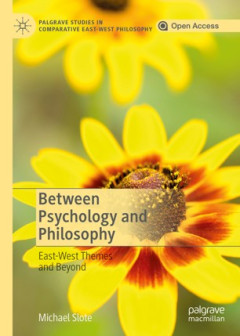
Between psychology and philosophy :east-west themes and beyond
This open access book discusses a variety of important but unprecedented ways in which psychology can be useful to philosophy. The early chapters illustrate this theme via comparisons between Chinese and Western philosophy. It is argued that the Chinese notion of a heart-mind is superior to the Western concept of mind, but then, more even-handedly, the relative strengths and weaknesses of Chine…
- Edisi
- -
- ISBN/ISSN
- 9783030225032
- Deskripsi Fisik
- x, 215p. : ill.
- Judul Seri
- -
- No. Panggil
- 101 SLO b
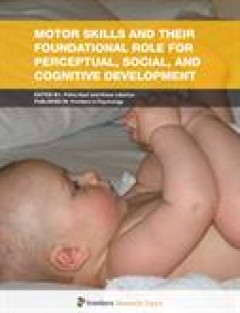
Motor skills and their foundational role for perceptual, social, and cognitiv…
Motor skills are a vital part of healthy development and are featured prominently both in physical examinations and in parents’ baby diaries. It has been known for a long time that motor development is critical for children’s understanding of the physical and social world. Learning occurs through dynamic interactions and exchanges with the physical and the social world, and consequently mov…
- Edisi
- -
- ISBN/ISSN
- 9782889451593
- Deskripsi Fisik
- 293 p.; 22 cm
- Judul Seri
- -
- No. Panggil
- 155.4 LIB m

Perception in Aristotle’s Ethics
Rabinoff strives to account for ethical perception (aisthesis) in Aristotle’s ethics—to give it a place of importance in ethical choice and action—and to offer an account of the faculty of perception expansive enough to include reception of the ethical significance of particulars. The book is motivated by particular features of Aristotle’s thought and by increasing philosophical awarene…
- Edisi
- -
- ISBN/ISSN
- 9780810136434
- Deskripsi Fisik
- IX, 196 p.
- Judul Seri
- -
- No. Panggil
- 171.3 RAB p

Space in Hellenistic Philosophy :Critical Studies in Ancient Physics
The volume discusses the notion of space by focusing on the most representative exponents of the Hellenistic schools and explores the role played by spatial concepts in both coeval and later authors who, without specifically thematising these concepts, made use of them in a theoretically original way. Renowned scholars investigate the philosophical significance and bring to light the problemati…
- Edisi
- -
- ISBN/ISSN
- 9783110365856
- Deskripsi Fisik
- XII, 224 p.
- Judul Seri
- -
- No. Panggil
- 114.0938 HEL s

Moral History from Herodotus to Diodorus Siculus
Why did human beings first begin to write history? Lisa Irene Hau argues that a driving force among Greek historians was the desire to use the past to teach lessons about the present and for the future. She uncovers the moral messages of the ancient Greek writers of history and the techniques they used to bring them across. Hau also shows how moral didacticism was an integral part of the writin…
- Edisi
- -
- ISBN/ISSN
- 9781474411073
- Deskripsi Fisik
- VIII, 312 p.
- Judul Seri
- -
- No. Panggil
- 170.938 HAU m

Introduction to a Future Way of Thought on Marx and Heidegger
"Technologists only change the world in various ways in generalized indifference; the point is to think the world and interpret the changes in its unfathomability, to perceive and experience the difference binding being to the nothing." Anticipating the age of planetary technology Kostas Axelos, a Greek-French philosopher, approaches the technological question in this book, first published in 1…
- Edisi
- -
- ISBN/ISSN
- 9783957960054
- Deskripsi Fisik
- 183p.
- Judul Seri
- -
- No. Panggil
- 193 INT i

Why knowing what to do is not enough :a realistic perspective on self-reliance
This open access book sets out to explain the reasons for the gap between “knowing” and “doing” in view of self-reliance, which is more and more often expected of citizens. In today’s society, people are expected to take responsibility for their own lives and be self-reliant. This is no easy feat. They must be on constant high alert in areas of life such as health, work and personal f…
- Edisi
- -
- ISBN/ISSN
- 9789402417258
- Deskripsi Fisik
- ix, 157p. : ill.
- Judul Seri
- -
- No. Panggil
- 179.9 KEI w
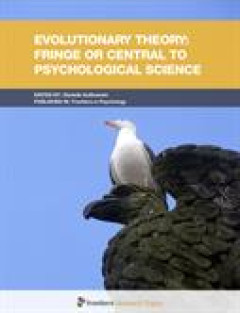
Evolutionary theory:fringe or central to psychological science
The computational theory of mind, which views the brain as an information processor that operates on cognitive representations, is central to modern cognitive psychology and is the dominant perspective from which brain function is conceptualized and studied. Evolutionary Psychology (EP) is the application of evolutionary theory to understanding human behaviour and cognition. Unlike other core P…
- Edisi
- -
- ISBN/ISSN
- 9782889199204
- Deskripsi Fisik
- 62 p.; 22 cm
- Judul Seri
- -
- No. Panggil
- 155.7 SUL e

Character, responsibility, and well-being:influences on mental health and con…
Character can be defined as self-aware knowledge that helps the individual to set goals, values and ethical principles (Cloninger, 2004). This meta-cognitive dimension of human personality involves ‘Theory of Mind’, and is positively related to measures of well-being, mental health, and constructive behavior patterns. Research from at least three different fields, cultural (Shweder, Much, M…
- Edisi
- -
- ISBN/ISSN
- 9782889198221
- Deskripsi Fisik
- 138 p.; 22 cm.
- Judul Seri
- -
- No. Panggil
- 155.2 ARC c
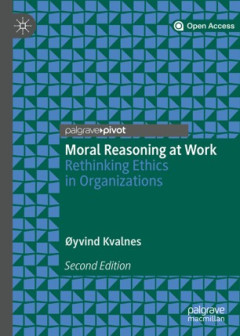
Moral reasoning at work :rethinking ethics in organizations
This book is open access under a CC-BY license. Moral dilemmas are a pervasive feature of working life. Moral Reasoning at Work offers a fresh perspective on how to live with them using ethics and moral psychology research. It argues that decision-makers must go beyond compliance and traditional approaches to ethics to prepare for moral dilemmas. The second edition has been updated with a rang…
- Edisi
- -
- ISBN/ISSN
- 9783030151911
- Deskripsi Fisik
- viii, 145p. : ill.
- Judul Seri
- -
- No. Panggil
- 174.4 KVA m

Lone parenthood in the life course
Lone parenthood is an increasing reality in the 21st century, reinforced by the diffusion of divorce and separation. This volume provides a comprehensive portrait of lone parenthood at the beginning of the XXI century from a life course perspective. The contributions included in this volume examine the dynamics of lone parenthood in the life course and explore the trajectories of lone parents i…
- Edisi
- -
- ISBN/ISSN
- 9783319632933
- Deskripsi Fisik
- 338 p.; 22 cm.
- Judul Seri
- -
- No. Panggil
- 173 BER l
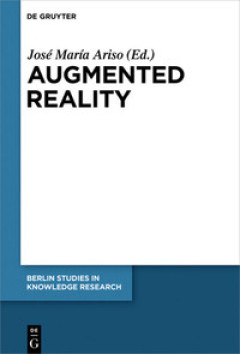
Augmented reality :reflections on Its contribution to knowledge formation
There is at present no publication specifically dedicated to analyzing the philosophical implications of augmented reality, especially regarding knowledge formation, which constitutes a fundamental trait of knowledge society. That is why this volume includes an analysis of the applications and implications of augmented reality. While applications cover diverse fields like psychopathology and ed…
- Edisi
- -
- ISBN/ISSN
- 9783110497656
- Deskripsi Fisik
- VII, 322 p.
- Judul Seri
- -
- No. Panggil
- 100 AUG a
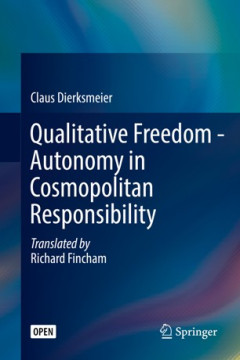
Qualitative freedom :autonomy in cosmopolitan responsibility
In the light of growing political and religious fundamentalism, this open access book defends the idea of freedom as paramount for the attempt to find common ethical ground in the age of globality. The book sets out to examine as yet unexhausted ways to boost the resilience of the principle of liberalism. Critically reviewing the last 200 years of the philosophy of freedom, it revises the princ…
- Edisi
- -
- ISBN/ISSN
- 9783030047238
- Deskripsi Fisik
- x, 365p. : ill.
- Judul Seri
- -
- No. Panggil
- 123.5 DIE Q
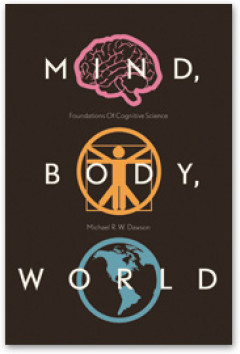
Mind, body, world :foundations of cognitive science
Cognitive science arose in the 1950s when it became apparent that a number of disciplines, including psychology, computer science, linguistics, and philosophy, were fragmenting. Perhaps owing to the fieldÕs immediate origins in cybernetics, as well as to the foundational assumption that cognition is information processing, cognitive science initially seemed more unified than psychology. Howeve…
- Edisi
- -
- ISBN/ISSN
- 9781927356180
- Deskripsi Fisik
- XV, 490 p.
- Judul Seri
- -
- No. Panggil
- 153 DAW m

Autistic community and the neurodiversity movement
This open access book marks the first historical overview of the autism rights branch of the neurodiversity movement, describing the activities and rationales of key leaders in their own words since it organized into a unique community in 1992. Sandwiched by editorial chapters that include critical analysis, the book contains 19 chapters by 21 authors about the forming of the autistic community…
- Edisi
- -
- ISBN/ISSN
- 9789811384370
- Deskripsi Fisik
- 330 p.; 22 cm.
- Judul Seri
- -
- No. Panggil
- 155.142 AUT a
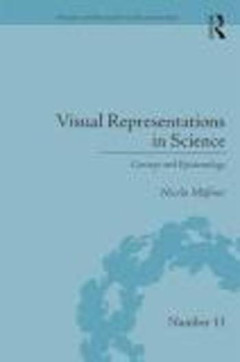
Visual representations in science :concept and epistemology
Visual representations (photographs, diagrams, etc.) play crucial roles in scientific processes. They help, for example, to communicate research results and hypotheses to scientific peers as well as to the lay audience. In genuine research activities they are used as evidence or as surrogates for research objects which are otherwise cognitively inaccessible. Despite their important functional r…
- Edisi
- -
- ISBN/ISSN
- 9781138089938
- Deskripsi Fisik
- 372 p.; 22 cm.
- Judul Seri
- -
- No. Panggil
- 121 MOB v
 Karya Umum
Karya Umum  Filsafat
Filsafat  Agama
Agama  Ilmu-ilmu Sosial
Ilmu-ilmu Sosial  Bahasa
Bahasa  Ilmu-ilmu Murni
Ilmu-ilmu Murni  Ilmu-ilmu Terapan
Ilmu-ilmu Terapan  Kesenian, Hiburan, dan Olahraga
Kesenian, Hiburan, dan Olahraga  Kesusastraan
Kesusastraan  Geografi dan Sejarah
Geografi dan Sejarah